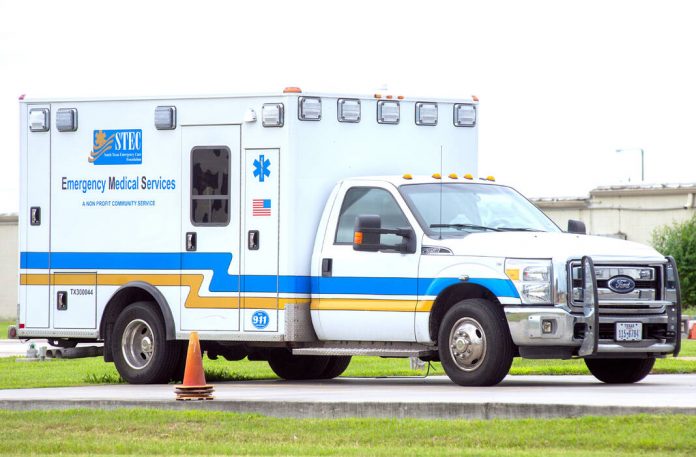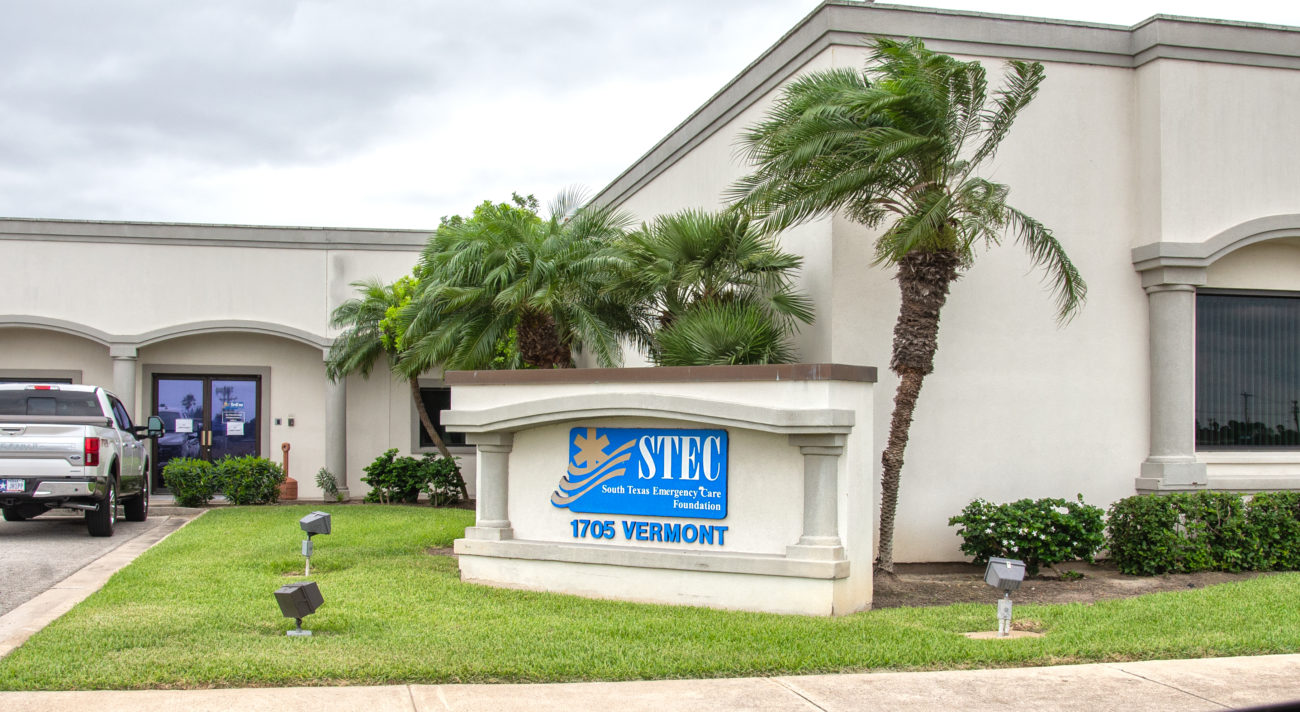
HARLINGEN — The city’s ambulance company’s exclusive rights to provide services might be on the line.
Now, officials are negotiating an agreement with the South Texas Emergency Care Foundation, whose five-year contract expires on Sept. 30.
For about 10 years, the city has granted STEC exclusive rights to provide emergency and non-emergency transport services after the company stopped charging the city about $395,000 a year to help fund its operation.
Instead, STEC began charging its patients.
As officials negotiate a new agreement, some commissioners are questioning the company’s exclusive rights clause.
Last week, Commissioner Rene Perez, the city’s mayor pro-tem, stated a new agreement might not include the exclusivity clause backed by a city ordinance granting police the power to warn or cite outside ambulance companies entering the city limits.
“It is being considered and very much on the table,” he stated Thursday, referring to STEC’s exclusivity clause.
Across the state, the cities of Arlington, Waco and Wichita Falls along with the counties of Wichita Falls and Rockwell offer their EMS services exclusive contracts, STEC officials have said.
Meanwhile, Perez stated he wants to allow outside ambulances to help provide non-emergency service “on a limited scale.”
“I believe competition is good,” he stated. “It forces companies to be more efficient and provide better services.”

During a workshop last month, a nursing home administrator joined some residents who complained of what they described as STEC’s non-emergency service’s slow response times.
Amid discussion, some commissioners said they wanted some outside ambulances to help STEC provide non-emergency transports, the lucrative service company officials argue generates revenue that helps fund their emergency ambulance runs.
“We are providing STEC one last opportunity to prove themselves capable of providing the quality of service and transparency that the residents of Harlingen deserve,” Perez stated Thursday.
“It’s a very limited time frame and they must show results — no excuses.”
NEGOTIATIONS
As STEC’s contract approaches its expiration, Mayor Norma Sepulveda and City Manager Gabriel Gonzalez are leading negotiations.
“I’m confident we will have a contract completed soon that will be agreeable to both STEC and the city,” Sepulveda stated Friday.
Last week, commissioners met in closed session with City Attorney Mark Sossi before giving Sepulveda and Gonzalez a “time frame” in which to negotiate with STEC regarding a memorandum of understanding.
On Friday, attorney Randy Whittington, who represents STEC, said the parties are negotiating “a contract.”
“STEC and Harlingen city officials have been and are continuing to work together on the details of an agreement to extend their long and valued relationship of more than 40 years,” he stated.
On Tuesday, city officials are meeting with STEC to continue negotiations, he said.
“We’re meeting to negotiate and we’re working out a few details and I’m confident we will,” Whittington said during an interview. “I don’t think there are any major obstacles standing in the way of working out something satisfactory for the city and STEC.”
LEADING TALKS
As commissioners prepared to cast their votes during a meeting last Wednesday, Commissioner Michael Mezmar proposed offering STEC a one-year contract.
“I’ll make the motion to approve as we discussed (in executive session) with a one-year contract,” he told commissioners before his motion died for lack of a second.
Then, Perez proposed Sepulveda and Gonzalez conduct negotiations.
“I make a motion to approve what we discussed and to give Gabe and the mayor the time frame to negotiate that we discussed during executive session,” Perez said as he made his motion.
Commissioners voted 3-1 to take Perez’s proposal, with Mezmar casting the dissenting vote while Commissioner Ford Kinsley, who serves as the commission’s representative on STEC’s board of directors, abstained.
Commissioners did not disclose the nature of their closed-door discussions.

Last year, during months of heated debate, members of the city’s past commission were considering scraping STEC’s exclusive rights clause to allow other companies to offer non-emergency transport service.
While STEC runs eight to 11 mobile intensive care ambulances a day within the city limits, the company taps three ambulances to offer non-emergency transports, officials said.
Agreements with other regional emergency medical services companies offer the city back-up ambulance service, they said.
Meanwhile, STEC’s ambulances average emergency response times of 8 minutes and 51 seconds, officials said.
In 1979, city leaders founded STEC to provide ambulance service in town.
Today, the nonprofit, which offers ambulance service across most of Cameron County, stations eight to 11 ambulances in the Harlingen area, officials have said.
About five years ago, STEC boosted its rates to range from $795 for basic life support to $1,220 in the area where about half its patients are on Medicare and Medicaid, which reimburses about a third of billings, company officials said.



